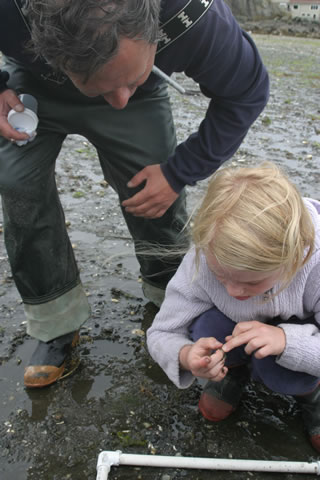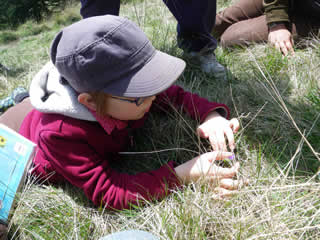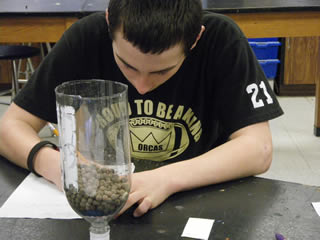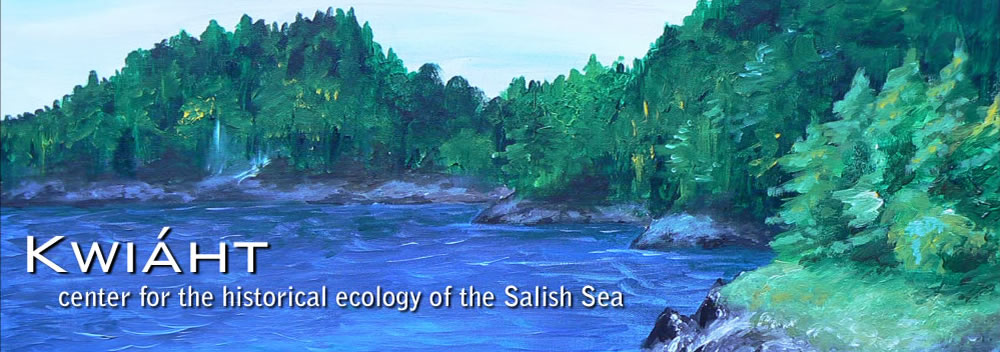Education

Invertebrate transect Indian Island
At Kwiaht, we believe that public participation in research is key to conservation: it is the best way to ensure informed, motivated landowners, consumers, and voters. This includes the incorporation of real science—not “book learning,” but hands-on experience in the field and the laboratory—in K-12 education, exploring the local ecosystems where children live and play. Students and adult volunteers should not be mere spectators while scientists work, but trained and made responsible for collecting specimens and data. We also find that volunteers of all ages are most motivated when it is clear from the start that (unlike typical school science labs) the "correct results" are not known in advance—that they share with scientists the uncertainly and excitement about what may be discovered. With real discovery comes intellectual self-confidence, greater respect for empiricism in managing our shared resources, and stronger advocacy: "I saw it for myself."

Botanizing on Mount Constitution

Benchtop bioswale under construction
